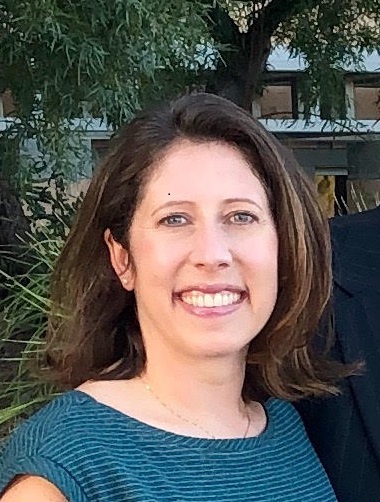Written By: Megan Schliep, MA, CCC-SLP, MPH
As we have all experienced, COVID presents a unique set of challenges to different aspects of life and daily activities, as well as to various stages of academia. In addition to my work as a fourth-year PhD student finishing my dissertation during these months, I work on a per-diem basis as a speech-language pathologist in the acute rehabilitation setting and am reminded of the challenges that others are experiencing during this time.
I have been fortunate that my family and I have remained healthy and that I have been able to transition to working remotely, which I recognize is a privilege. Some of the personal challenges involving productivity and marking milestones have been framed by the much larger issues that our country and healthcare system are facing, which has helped me to keep things in perspective.
Since the onset of COVID, I have been working from home and coordinating research activities, collaborating with colleagues, and writing and revising papers. On a personal level, one of the biggest challenges to the early weeks and months of this new situation was dealing with the unknowns. The uncertainty surrounding COVID, and the timeline of events compounded a series of “to-be-determined” events, including the schedule for completing my dissertation and identifying exactly what the post-dissertation time-period would look like. The uncertainty involving remote testing for my study participants with communication impairments who were completing a longitudinal study was one more factor to consider.
Developing a routine with my lab team and research advisor, Dr. Sofia Vallila-Rohter, helped me to stay connected to our group and our work. Our weekly group meetings helped create a sense of normalcy, and the flexibility within these meetings to hit “pause” on the work and discuss our current challenges gave space for the uncertainty. A particularly positive experience during the past several months involved an intensive statistics R zoom session with my colleague, Victoria Tilton-Bolowsky, where we explored our current data set together. The opportunity to spend time collectively immersed in our work and learn from the data was a reminder of the “why” of our project—it reinvigorated my initial enthusiasm for the work, which has sometimes felt far away while operating from my desk at home.
The opportunity to brainstorm in developing new projects and research activities has also been extremely energizing. Working with my research and clinical colleague, Carla Tierney-Hendricks, and our advisor, Sofia Vallila-Rohter, we began developing and refining a new survey-based project. Given the challenges of COVID and the need to adapt prior work, it has been very reassuring to start something new that is well-suited to the current environment and that we will not have to modify in the same way required of other work spanning pre- and post the onset of COVID.
In terms of my dissertation, one of the primary challenges has been writing at home and maintaining focus when there are many other more urgent things happening in the world. Recently, after an only mildly-productive writing session, I received a call from the sister of a research participant who had just completed all testing time-points. She wanted to share a few updates regarding the participant’s progress and request some additional resources. During the conversation, I was reminded of the value of our collaborative work, including the collaborations of participants, their families, and our clinical and research colleagues. For me, this certainty is comforting given the other uncertainties for the near future.

Megan Schliep, MA CCC-SLP, MPH is a fourth-year PhD Candidate at MGH Institute of Health Professions. Her research interests include language recovery in aphasia, with a focus on the standardized assessment of language and cognitive skills across the care continuum and the role of this information in predicting patient outcomes.
